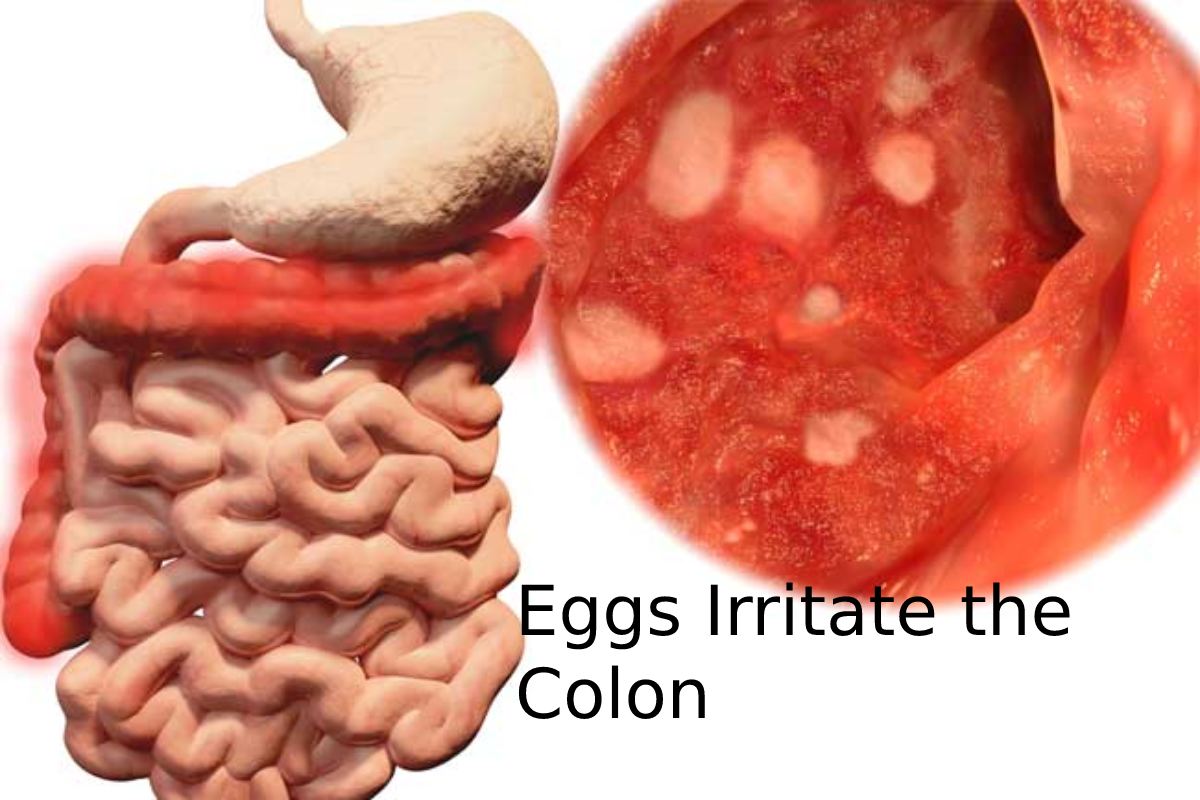Eggs Irritate the Colon
Eggs are high in vitamin D, which is helpful for gut health, especially in people with leaky gut syndrome. Ulcerative colitis and Crohn’s disease are procedures of irritable bowel disease, digestive illnesses accompanying many digestive problems. August 27, 2022
Table of Contents
Frequency and Prominent Symptoms of Eggs Irritate Colon
Bowel Syndrome
Eggs Irritate the Colon bowel syndrome, more correctly called irritable bowel syndrome (IBS), is a disease that varies in frequency from country to country. In industrialized countries like Spain, stress is considered one of the leading causes, which is why it has a psychosomatic origin.
The brain and gut closely connect.
A person’s mood directly affects intestinal secretion: bile when you feel fear, anger, disgust, and fear. Bitterness has the function of digesting fats in the intestines, but it is very laxative. So if a personal situation causes bile to be released in the intestines when digestion is not taking place, there is a high likelihood that diarrhea will occur.
The profile of people with IBS has changed a bit. Initially, it trendy hardworking, responsible, middle-aged women with a high degree of self-demand and controlling character. Currently, this disease also affects young people and even children.
Irritable bowel is a chronic condition (although it can be transient) characterized by pain and bloating in some cases. In addition, it also produces transit disorders such as diarrhoea, constipation, or both in alternation. IBS is exclusive of abdominal pain or discomfort and stool frequency or consistency (ranging from diarrhoea to constipation). It often goes with gas, gas and bloating.
Diagnosing Eggs Irritate Colon bowel syndrome is not easy.
Therefore, when making the diagnosis, the specialist usually follows the Rome III criteria, which indicate that the abdominal pain must have recurred on at least three days a month for the past three months, in addition to two or more of the following signs:
- Improvement of symptoms after evacuation.
- The onset of symptoms after a change in the frequency of bowel movements.
- Other symptoms depend on changes in the shape or appearance of the stool.
- irritable bowel diet
- The diet of the person with IBS is individually adjusted. As general guidelines, we can highlight:
To stop contributing to intestinal transit imbalances, moderate consumption of insoluble fibber (from whole foods) in the diet.
Encourage the diet’s consumption of soluble fibber (in the form of gums, pectin and mucilage’s). It done with the help of quince jam or apples, although it recommends taking supplements of this type of fibber daily.
Avoid high-fat foods, citrus fruits (especially oranges), and spinach to reduce and neutralize the laxative effects of bile salts (bile) in the colon.
Reduce your fructose intake (a type of simple sugar found primarily in fruit). Select fruits that are lower in sugar and higher in pectin, such as B. Apples in their skins. It is not appropriate to drink fruit juices or nectars.
Eliminate sorbitol (a sweetener), hot food or spices, gas (in beverages), coffee, and tea.
It is vital to ensure hydration when there is decomposition or diarrhoea. Drink two litres of water daily. Drinking water or soft infusions such as Tila and Maria Luisa (which do not have a laxative effect) is optional. In addition, adequate fluid intake also helps against constipation.
Even if you trail all of the above guidelines, you should not forget that it is necessary to manage stress. A natural way to combat and control pressure is to take passionflower and valerian.
Foods for Irritable Bowel Syndrome
Researchers at Monash University in Australia developed the FODMAP diet. FODMAP is the sum of the first letters of the English words Fermentable Oligosaccharides, Disaccharides, Monosaccharides, and Polyols in Spanish. They are all short-chain carbohydrates.
Therefore, the FODMAP diet is low in fructose, lactose, fructans, Galatians and polyols. Contained in the following foods:
- Fruits: like apple and pear.
- Vegetables: such as onion, asparagus and garlic.
- Legumes: such as peas, soybeans and lentils.
- Cereals: wheat and derivatives, rye and barley.
- walnuts
- Dairy products: milk, cheese, ice cream and yoghurt. Assess tolerance.
Artificial sweeteners: products containing sorbitol (E420), mannitol (E421), isomalt (E953), maltitol (E965) xylitol (E967), etc.
What is the Connection Between Irritable Bowel Condition and the FODMAP Diet?
Fermentable oligosaccharides, disaccharides, monosaccharides and polyols not 100% absorb in the small intestine in some people. Thus, these unabsorbed molecules continue to the large intestine, where they usually serve as food for bacteria.

